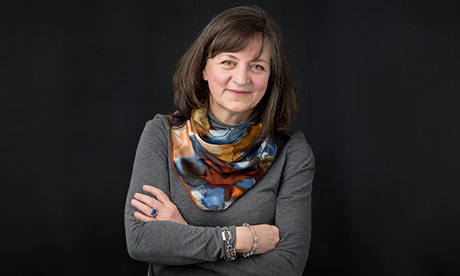There is only one topic trickier than death, according to Kathryn Mannix, who has made it her life’s work. “We’re embarrassed to talk about love. We’re not very good at talking about dying and deaths. Oh my goodness, we’re terrible at talking about love. We’re awful at it.”
Why? “It’s about being vulnerable — if I tell you that I love you and you don’t love me back.”
In 30 years working in hospices and hospitals as a palliative care doctor, Mannix has seen love and death at close quarters.
Many people at the “edge of life, not everybody but a lot, have reached a place [where] they get what [life’s] all about, it’s much bigger than stuff and reputation.
It all comes down to self-worth and realising the worth of other people . . .
There’s a danger that we leave it to the last moments and wait for the Hollywood last awakening where the person wakes up and [says], ‘I loved you all along.’ And that doesn’t happen . . . Lots of people [feel] very disappointed.”
Since retiring in 2016 as a consultant in palliative medicine, and regional lead in the North East and North Cumbria for palliative and end-of-life care, Mannix has made it her mission to talk about death and dying, encouraging people to have meaningful conversations about last wishes and love before it is too late.
The success of her 2017 book With the End in Mind has given her a platform.
“By encountering death many thousands of times,” she wrote, “I have come to a view that there is usually little to fear and much to prepare for. Sadly, I regularly meet patients and families who believe the opposite: that death is dreadful, and talking about it or preparing for it will be unbearably sad or frightening.”
I wanted to talk to Mannix because her experience seems important as countries across Europe consider legislation on assisted dying.
France, Ireland, Scotland and the UK crown dependencies of Jersey and the Isle of Man may follow Switzerland and the Netherlands in permitting it in various forms, while Sir Keir Starmer, leader of Britain’s Labour party, campaigning to win the general election on July 4, has said members of parliament will have a free vote on the matter.
We can’t keep doing this one family at a time.
I arrive early for lunch at Six Rooftop, the glass-walled restaurant in the Baltic, Gateshead’s cultural centre.
Shaking out my wet coat, I feel relieved that we didn’t go with our original plan to meet for fish and chips on the Northumberland coast.
Outside, the sky is grey, a brooding backdrop for a conversation about death.
If the interview was filmed, I’d worry that the inclement weather was too crassly symbolic.
Mannix joins me at the table, pointing out the kittiwakes flying over the Tyne.
“I’m sorry that we’re looking down the river in the rain because it’s beautiful on a lovely day.”
This restaurant has happy connotations for Mannix as the venue for various reunions with her year from Newcastle University Medical School, where she also met her husband.
Nonetheless, the 65-year-old former consultant and psychotherapist, dressed in mauve and grey, seems trepidatious, still not used to being the one holding forth rather than doing the listening.
Mannix has the soothing voice of an empathetic doctor though occasionally I strain to hear her over the hubbub of a Bank Holiday weekend.
Is it depressing to be around so much death?
“Look how miserable I am,” she smiles, relaxing.
On the good days, her job provided the “best feeling in the world, you really make a difference at a point in [a patient’s] life when that really matters.
“You’re giving them their comfort back.
“The highs are high and the lows are low . . . You are meeting [people] who are sorrowful, but they are not only sorrowful.”
Death dispenses with social conventions.
“There’s something about people’s attitude to the world and other people when there are no boundaries left that you’ve got to observe; they are the released version of who they’ve always been . . . and most people are naturally nice . . . there’s a softness.”
It was the case of a man brought into hospital with a long medical history that spurred Mannix’s decision to start campaigning.
His two adult sons felt clueless about his final wishes because they had avoided their father’s gentle cues to talk about his eventual death, wanting to chivvy rather than depress him.
“They just missed the hope of having that conversation with their dad because they thought they were going to be discussing something that was unbearable to talk about.”
What bothered her was not that their story was remarkable, but that it was so commonplace.
“I [would] just wake up in the middle of the night thinking, ‘We can’t keep doing this one family at a time. We can’t keep [waiting] for the palliative care team to have a conversation about dying.’”
Improvements in medicine over the 20th century had the unfortunate byproduct, Mannix says, of shielding people from death.
“There’s still a 100 per cent death rate and we need to think about when the dying can’t be stopped.
“What can we do that enables it to be comfortable?”
Ignorance about death and dying, she says, is “a massive societal problem”.
By raising public understanding, she hopes “that when doctors and nurses do try to have those conversations, they’re talking to people who’ve got a few pegs to hang the ideas on”.Continue reading
Additional readingNews category: Analysis and Comment.




